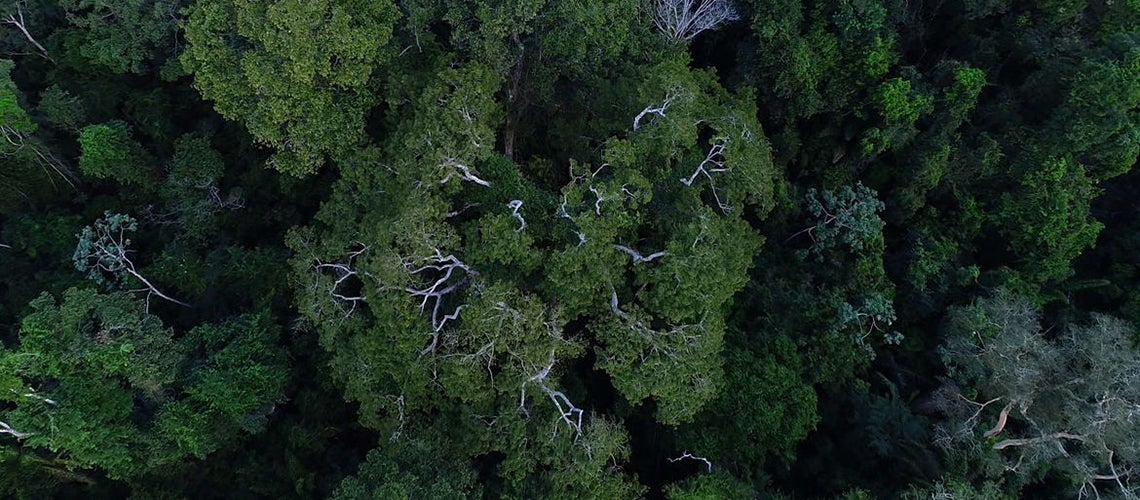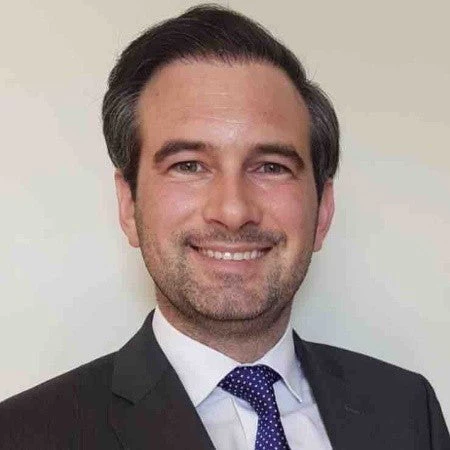 Amazon rainforest seen from above
Amazon rainforest seen from above
The Amazon houses exceptional value, yet every year a share of this natural wealth is lost to deforestation. And with every year that the agricultural frontier moves further into this fragile ecosystem, the risks rise that it will be lost forever. Halting, and eventually reversing, this dangerous trend requires different incentives.
The tragedy of the commons
The tragedy of the Amazon is but one form of the “tragedy of the commons”. In a nutshell, it refers to the case of unclear property rights around a resource, which can lead to overexploitation. It applies as much to the world’s fish stocks (overfishing), endangered species (poaching), or land grabbing in the Amazon. In the Brazilian Amazon, land grabbing is associated with the very nature of a frontier region where property rights have remained weakly defined since the Portuguese empire. At the same time, the weak rule of law in this frontier region also results in other violations of Brazil’s Forest Code, which technically protects a share of natural forest in all private properties.
The tragedy of overexploitation of the Amazon makes Brazil and the world worse off , since the value of the standing forest -- from ecosystem services such as carbon capture and storage, climate regulation, and housing exceptional biodiversity -- exceeds any private value from ranching, logging or mining. Yet since most of the environmental benefits are reaped by a diffuse group of beneficiaries—in this particular case essentially the world—the financial profits accrue to a much smaller group, including of course the perpetrators themselves. And for them, not taking into account the costs they impose on others (or ‘negative externalities’ in econ speak), the economic calculus, lamentably, works in the favor of destruction.
Changing incentives: strengthen institutions
There is a need to continue leveraging scientific research to build further support for forest protection . Yet more needs to be done because the stakes are too high to only rely on the soft power of persuasion. There also needs to be coercion. After all, most deforestation in the Amazon is illegal, so to a considerable extent stopping deforestation is a matter of law enforcement. This, however, is plagued by various challenges too.
For one, at least since the influential work by Douglas North, it is well known that institutions shape markets and economies -- as much as economic forces shape institutions. This means that as long it is good business to deforest, institutions may have incentives to enable it, or at least not resist it. This conundrum is a variant of the "natural resource curse”, in which high rents from natural resources (in this case forest depletion) corrode institutions.
There are various examples for such endogenous institutions in the Amazon. One is the poor enforcement of existing laws, by slashing the budgets of law enforcement agencies (like IBAMA and ICMBio) or lackluster judicial prosecution; another is an implicit legal endorsement of illegal activities, such as the continuous extension of cut-offs to regularize recently settled land (essentially promoting land grabbing) or the 2012 revisions of the Forest Code, essentially pardoning large parts of past illegal deforestation; another is poor deterrence, such as low fines for deforestation; and finally there are opportunities to simply increase the area that can legally be deforested, for example by exiting the official region of the Legal Amazon with its relatively strict regional limits for land clearing.
Ironically, endogenous institutions also imply that certain policy packages intended to reduce deforestation can have unintended consequences. For example, one way to stop land conversion without sacrificing agricultural output is by combining forest governance interventions (like “command and control”) with agricultural productivity, essentially resulting in agricultural intensification (more output per hectare). Yet when institutions are endogenous this is like putting the fox in charge of the hen house: the Jevons effect suggests that more productive farmers are also more competitive and even though they become more efficient in producing they still demand more land—fueling their incentives to deforest and generating political incentives to hollow out the institutions intended to protect forests.
Toward a virtuous political economic cycle
Therefore, realigning incentives and making them consistent with effective forest governance lies at the core of the agenda to protect the Amazon . Our recent report argues that this growth model needs to be rebalanced between agriculture and the sectors that eventually drive economic transformation: manufacturing and services while raising productivity across the economy (i.e. not only in agriculture). This would take pressure off the agricultural frontier and reduce resistance to effective forest protection—and the faster the expectation changes that the future of prosperity in the Amazon lies in extensive agriculture the better. And to ensure that incentives change more quickly, we argue for the use of conservation finance that monetizes the exceptional value of Amazonian forests, making it more beneficial for everyone to protect rather than destroy them.
Building institutions takes time however, and this holds true for institutions that protect forests, that support productivity growth, and that channel financing. The latter may be faster, so this is a good place to start. And financing will be critical both to resource forest governance efforts and for a more balanced and sustainable development model. It can also refocus expectations more quickly if financial resources become available for protected forests: and expectations, we know, change incentives fast.
Stay updated with our weekly article
Related articles



Join the Conversation